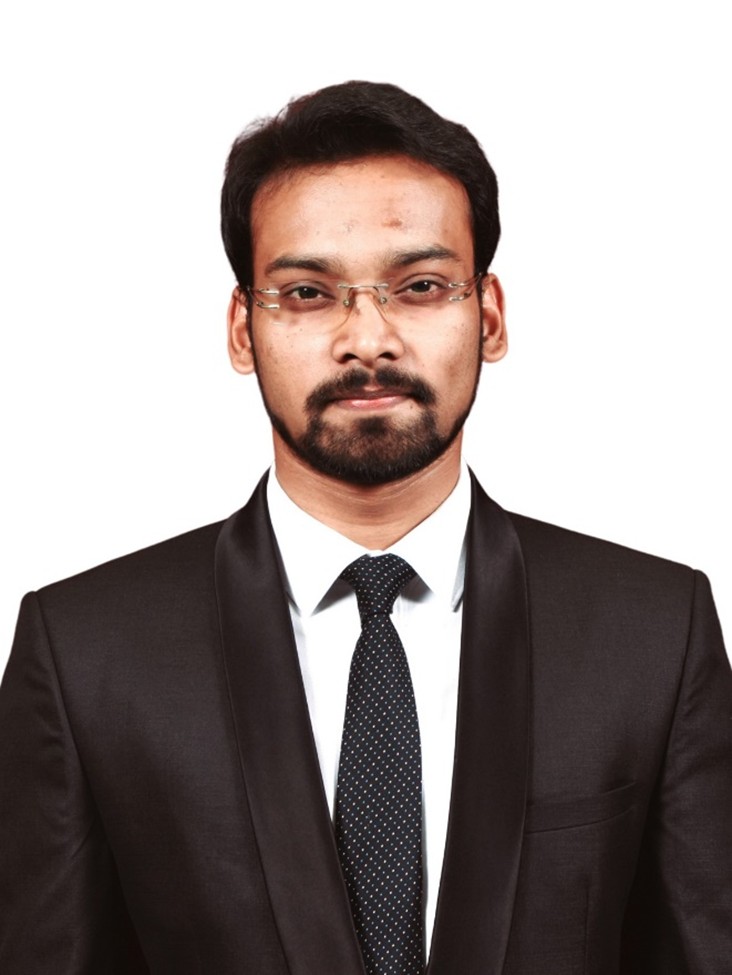How an Indian Chemistry Researcher Won the Brain Korea 21 Fellowship to Pursue His Ph.D. in Chemistry at Pusan National University
University: Pusan National University
Degree: Ph.D. in Chemistry
Previous Education: Integrated Master of Science in Chemistry – National Institute of Technology (NIT) Rourkela
Scholarship: Brain Korea 21 (BK21) Fellowship – Research-Based Funding
Other Offered Scholarships (if any):
- BK21 Postdoctoral Fellowship (2024–2025)
- Pusan National University Postdoctoral Fellowship (2025–2026)
- G-LAMP Postdoctoral Scholarship (2025–2026)
Social Media
LinkedIn: linkedin.com/in/sangram-keshari-mohanty/

The Journey
My name is Dr. Sangram Keshari Mohanty, and I am originally from Odisha, India. I hold a Ph.D. in Chemistry from Pusan National University, South Korea. My passion lies in electrochemical energy storage, with a specific focus on the development of advanced cathode materials and interfacial analysis of battery systems. I chose this field due to its critical role in addressing the global energy crisis through sustainable and high-performance storage technologies. My journey has been driven by a strong desire to contribute to clean energy solutions through rigorous research and innovation.
Brain Korea 21 (BK21) Fellowship Details
During my doctoral studies at Pusan National University, Prof. Hyun Deog Yoo personally interviewed me and advocated for my receipt of the Brain Korea 21 Fellowship, a government-funded program for high-achieving doctoral scholars. Under his direction, I conducted a mechanistic investigation of oxide-derived silver with mesopores and residual oxygen as a multifunctional electrocatalyst, demonstrating its efficacy as an air electrode in zinc–air batteries and as a catalyst for CO₂ reduction. This work was subsequently recognized with the Academic Researcher Award from Pusan National University. I acknowledge Prof. Yoo’s professional guidance throughout these milestones.
Other Scholarships
I was honored with the BK21 Postdoctoral Fellowship (2024–2025), a prestigious scholarship of the renowned Brain Korea 21 (BK21) program designed to cultivate early-career researchers in South Korea. For the academic year 2025–2026, I was awarded the Pusan National University Postdoctoral Fellowship as well as the G‑LAMP (Global Leading Advanced Materials and Processes) Postdoctoral Scholarship, delivered through institutional grant support. These honors affirm PNU’s commitment to advancing global excellence in materials research and underscore the university’s investment in transformative battery technologies.
Educational Background
I completed an Integrated Master of Science in Chemistry at the National Institute of Technology, Rourkela (NIT Rourkela), one of India’s top-ranked engineering institutes and an Institute of National Importance. Gaining admission to this highly selective program required clearing the JEE Main, India’s national engineering entrance exam, which attracts over a million applicants annually and is regarded as one of the country’s most demanding competitive exams.
At NIT Rourkela, I benefited from a rigorous curriculum that seamlessly integrated advanced theoretical coursework with hands-on laboratory research and collaborative project work. This environment provided a strong scientific foundation, equipping me with both analytical and experimental skills essential for success in doctoral-level research in materials chemistry.
How Did You Prepare to Apply to Pusan National University? How Did You Prepare to Apply for the Brain Korea 21 (BK21) Fellowship?
- Finding Information: I explored global university rankings and faculty research profiles to identify institutions aligned with my research interests. The Pusan National University website and BK21 program page provided clear guidance on eligibility and application steps.
- Standardized Tests: As I applied to a Korean university with English-based graduate programs, I submitted my TOEIC scores to demonstrate English proficiency.
What Do You Think Made Your Application Stand Out?
My application was strengthened by:
- A coherent research vision aligned with the lab’s ongoing projects.
- A solid publication record from my master’s thesis work.
- Strong letters of recommendation and evidence of interdisciplinary research skills.
What Would You Have Done Differently if You Were Going Through the Process Again?
I would have initiated more collaborations with labs in other countries earlier in my Ph.D. to broaden my research scope and academic network.
What Advice Would You Give Those Looking to Apply for a Similar Scholarship?
- Start early and reach out to potential advisors with a tailored research proposal.
- Demonstrate clarity in your research objectives and highlight your contributions to previous projects.
- Focus on building a strong academic profile—grades, research experience, and publications matter.
- Be persistent and open to feedback.
Want to submit your
scholarship journey?
Submit Your Story Here!
More Scholarship Recipients

My name is Zara Qaiser. I’m originally from Singapore and Pakistan (yes, both!), and I am now pursuing a PhD in Public Pol .... Read more
- American University
- Columbian College of Arts & Sciences Doctoral Fellowship
- Economics
- Fully Funded Scholarships
- Graduate Assistantships
- Graduate Merit Award (American University)
- Pakistani Nationality
- Ph.D. Scholarships
- Public Administration
- Public Policy
- Singaporean Nationality
- The George Washington University
- United States
- University of Massachusetts Boston

Hello! My name is Sakshi Barhai, and I am from Pithora, a small town in the state of Chhattisgarh, India. After clearing the .... Read more

My academic journey toward biomedical science has been shaped by both curiosity and reality. Growing up in Pakistan, I obser .... Read more

Leave A Comment